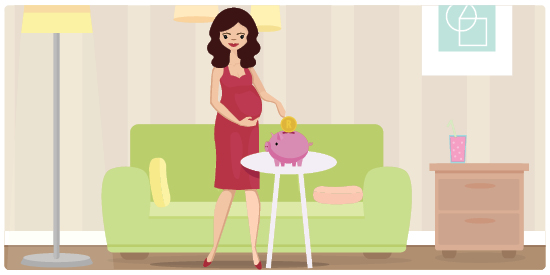 What does it take to raise a child to adulthood? Lots of love and care, and about R2-million, most of which will be spent on clothing and education. Now’s the time to start saving.
What does it take to raise a child to adulthood? Lots of love and care, and about R2-million, most of which will be spent on clothing and education. Now’s the time to start saving.
According to financial planner Sydney Sekese, it costs around R90 000 a year to raise a child, with the bulk of those costs involving education, clothing and extramurals such as ballet and soccer.
That means around R2 million by the time the child is 23 – which is probably on the low side for people who send their children to private schools.
That is a lot of money, and it highlights the reality that having a child is a long-term financial commitment. But it is also not a reason to panic and believe that unless you have that money sitting in a trust fund somewhere, your child is going to end up uneducated and homeless.
I can assure you my parents never had R2 million to raise me. In fact most of us raising our own children today, never remember the cost of raising a child being headline news for our parents. As parents we find a way, one way or another – and I know this from experience.
I have had a very expensive journey raising my eldest son, who is now turning 17. As a special needs child he has required intensive therapies, special needs education and now attends a private high school with small classes and a facilitator, all paid for by us. The cost of raising our son would probably make Sekese’s spreadsheet explode. In fact, there are days when I wonder if it would not have made more sense to have invested all this money and given him a trust fund instead!
There is no way we could ever have predicted or planned for these expenses, yet we have managed so far. We just made his education a priority and then adjusted our lives accordingly. There are things we do differently, and spend less on, in order to meet our son’s educational costs.
We found extra work: Both my husband and I took on extra work and that money is very clearly earmarked for paying for all the extra costs such as the facilitator and therapies. As a writer I have been fortunate that I can ramp up my workload, and with his accounting skills my husband has always found ways to earn extra cash. Any work bonuses go straight to school fees.
No car payments: We buy our cars second hand with cash. We have never bought a luxury car with R10 000 installments each month. I confess that I get mildly irritated when people complain about school fees but are paying thousands of Rand each month in interest alone on their cars. If a child’s education is a priority, then a car is not.
We learnt to live on a budget. We have a good lifestyle but we watch what we are spending and avoid going into debt. Our credit cards are paid in full each month. Debt repayments are just a waste of money that could be going to education costs.
We limit the extramurals. A lot has been written about how kids today are doing far too many activities, so cutting back is a good thing. Our sons’ school offers a wide variety of free extramurals and they can select one paid extramural a year.
We have put money away for tertiary education. While we never planned for our sons schooling costs, we did start putting money away for their tertiary education from a very young age. Planning for these costs is obviously far preferable to winging it each month. Sekese calculates that university education will currently cost between R300 000 to R350 000 for tuition, books, room and board and other expenses such as a computer, cellphone and internet access. This could be projected to cost R1m by the time a six-year-old attends university. Our savings won’t cover everything but it will ease the costs. Remember, your child can also live at home whilst study at university.
Our children will get jobs: My son got his first job in the December holidays as general bottle washer at a local coffee shop. This gave him extra money for the holidays but also prepares him for the fact that any spending money has to be earned. Kids can help in earning an income.
So if the figures around the cost of raising a child have you considering putting them up for adoption or to never have children in the first place, my advice is to ignore the hype. You will find a way, as long as you make your child’s education your main financial priority.
– This article was originally published in January, 2017.

Leave a Reply